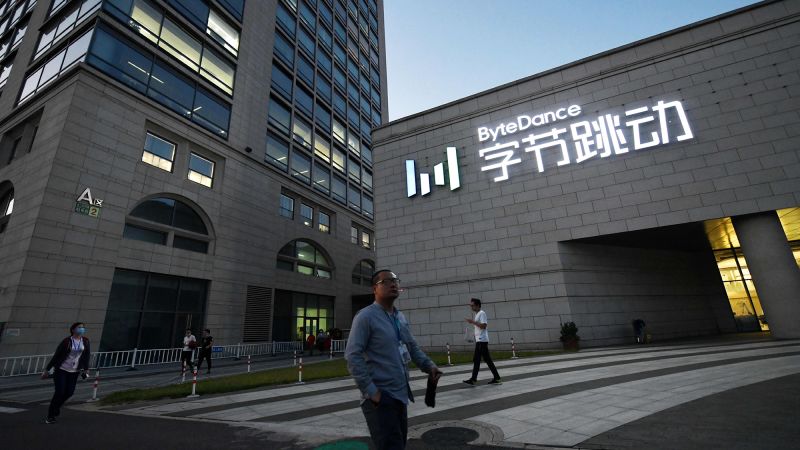TikTok, the popular Chinese-owned app, is facing a potential ban in the United States if its owner, ByteDance, fails to sell the app within the next year. Congress has approved legislation that could compel ByteDance to sell TikTok or face a national ban, with President Joe Biden expected to sign the bill into law. Beijing has previously expressed opposition to a forced sale of TikTok and has revised export control rules to potentially block a sale on national security grounds, leaving few options for ByteDance to secure the app’s future in the US, its biggest market with 170 million users.
The implications of a potential TikTok ban are significant, as it could mark the end of ByteDance’s global expansion and deepen the divide between the tech industries of China and the US. A ban on TikTok could result in a windfall for competitors like YouTube, Google, and Instagram, as many users may shift to alternative platforms. Additionally, a ban on TikTok could accelerate the split in the global tech landscape into two blocs, with one centered on the US and the other embracing Chinese tech.
The TikTok legislation was included in a foreign aid package aimed at supporting Israel, Ukraine, and Taiwan. Once President Biden signs the bill into law, ByteDance will have up to a year to complete the sale of TikTok or face an effective ban. Concerns about TikTok’s national security risks, including data sharing with the Chinese government, have been raised by US officials and legislators, leading to the legislation for ByteDance to divest its ownership of the app.
Chinese companies and apps operating in the US are facing increasing challenges, with the Biden administration ramping up efforts to enforce a rule on protecting US information technology supply chains. While China has pledged to take necessary measures to protect its interests in response to the TikTok legislation, it is not expected to react strongly to the US ban on TikTok. Beijing has historically blocked most US social media platforms in China, citing data collection and content rules as reasons for the restrictions.
In the face of growing tensions between China and the US, the tech industry is poised for further disruption. The ban on TikTok could have broader implications for the global tech landscape, including the ownership and operation of data centers, satellites, undersea cables, and semiconductors. While Beijing may be more concerned about US technology controls than a social media ban, the potential ban on TikTok could signal a deeper ideological struggle within the technology industry.
Overall, the fate of TikTok in the US highlights the increasing competition and regulatory challenges facing Chinese tech companies in the global market. The growing divide between technological innovation in China and the US, as well as the potential for further restrictions on Chinese companies in the US, point to a more complex and contentious relationship between the two economic superpowers in the tech sector. The outcome of the TikTok saga will have ripple effects on the future of tech industry regulation and competition on a global scale.













